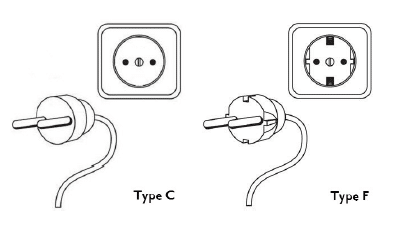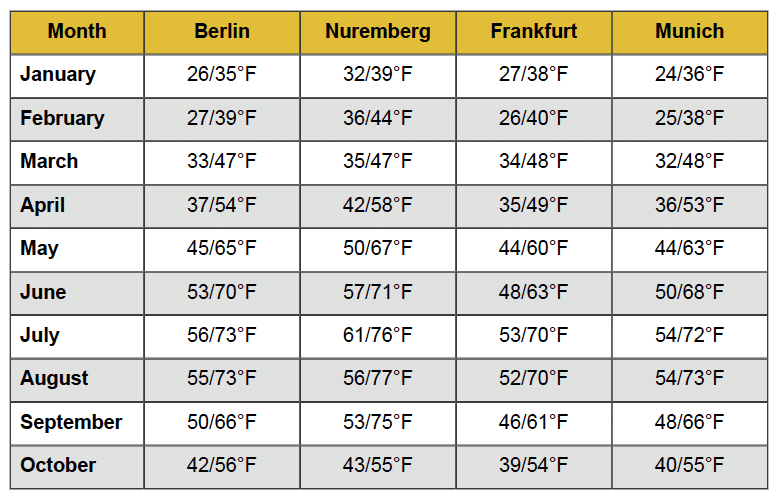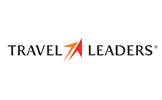GERMANY

Fun Facts From Globus Tours
![]()
- Berlin became home to the biggest train station in Europe in 2006.
- The tallest church in the world, Ulm Cathedral, is in Germany. It is 530 feet high.
- Germans are the second-biggest consumers of beer in the world.
Germany’s territory covers 140,000 square miles (population 82.3 million) and represents one of the heartlands of Central Europe. For 44 years after World War II, both Europe and Germany were divided by the . Iron Curtain, symbolized and carried to the extreme by the construction of the Berlin Wall, which enclosed the western part of Berlin and split the former German capital in half. Nevertheless, West Germany experienced an economic miracle after 1945 and its prosperous industries, rising like a phoenix from the ashes, gained a reputation for reliability and quality. November 9, 1989, found the Berliners in happy turmoil; the wall, the infamous symbol of the Cold War, had fallen as a consequence of peaceful protest throughout East Germany. The country was politically unified within a year, although the daily groundwork of growing together again still continues.
Renowned for cultural achievements and for its composers, painters, poets, and philosophers, famous German citizens include composers Bach, Beethoven, Wagner, Brahms, and Mendelssohn; church reformer Luther; writers and poets Goethe, Schiller, Hesse, and Thomas Mann; the painters Dürer, Cranach, Ernst, and Klee; philosophers Kant and Nietzsche; scientists Einstein and Röntgen…and Marlene Dietrich!
Visitors love Germany’s romantic images: dense forests, ancient fairytale castles, timber-framed architecture, lakes and mountains, cliffs, ruins, and elaborate gardens. In contrast, large cities like Berlin, Hamburg, Cologne, Munich, and Frankfurt offer vitality, modern urbanity, and avant-garde styles.
Traditional German foods are hearty and comforting, with pork meat and potatoes being a staple. Outstanding beer is produced in over 1,200 breweries, and excellent wines thrive on the slopes of the southwest, in the Rhine Valley, and Franconia. The most famous event is the annual Munich Oktoberfest, a large outdoor fun festival with exhilarating rides and 14 beer tents; it attracts six million visitors every year for a two-week period ending the first Sunday in October.
Germany’s climate varies, regardless of altitude, from wet and unsettled weather in the wind-exposed flat north and northwest, to more calm weather and hot spells further south and southwest. Generally, the Upper Rhine Valley, Main, and Lake Constance area rank among the sunniest. The Alpine regions offer anything from extremely rough to lasting fine spells any time of year. Summer temperatures can reach the 90s; snow could fall anywhere during winter but lasts mainly on the southern hills and in alpine terrain.
There’s fine craftsmanship and great shopping possibilities throughout Germany: wood carvings and religious items, cuckoo clocks, glass, crystal, porcelain, knives and scissors, Christmas decorations, toys, lenses (Zeiss Jena)… and BMW, Audi, Volkswagen, and Porsche for quality cars.
VISAS, PASSPORTS, AND OTHER ENTRY REQUIREMENTS
Visas to Germany are not required for US citizens. If you hold a passport from another country, please check with your local consulate about requirements for travel to Germany. All passengers traveling internationally are required to have a passport. Please carry proper identification (your passport) on you and do not leave it in your suitcase or hotel room.
It is advisable to carry your passport with you at all times.
COUNTRY CODES
The country code for Germany is 49. When calling to Germany from overseas, dial your international access code (011 from the US/Canada), followed by the country code, area code, and phone number. Phone numbers in Germany are 5-14 digits in length. Dialing from the US/Canada: 011 49 ### ### ####.
CURRENCY
The official currency of Germany is the Euro.
Bank hours 8:30 a.m. to 4 p.m., Monday through Friday. Some branches stay open until 5:30 p.m. Thursdays.
Euro coins differ according to country, but they can be used in any Eurozone state. Banknotes are of uniform EU design (depicting European architectural styles throughout seven ages, from Classical to Modern times).
For the most current exchange rates, please go to our website at Globusjourneys.com/Currency.
Credit cards are widely accepted, (mostly Visa and MasterCard), and you should have no problems using them in larger shops and restaurants. Smaller shops may ask you to pay in cash or have a minimum amount required to use a credit card.
BUDGETING AND SHOPPING
The following budget guidelines are just approximate values or starting values for meals and are per person. Actual prices will vary widely by restaurant and city within a country but below are some averages as provided by our experienced personnel.
- The approximate cost of a soft drink/mineral water/coffee is €3-4.
- An average lunch consisting of a salad or sandwich and a soda or water starts at approximately €8-15
- Dinner at a mid-range restaurant with dessert and a non-alcoholic beverage starts at approximately €30-40.
Please note that soft drinks and mineral water are often as expensive, if not more expensive than wine or beer.
Shopping specialties: wood carvings and religious items (Bavaria), cuckoo clocks (Black Forest), glass, crystal, Meissen and Rosenthal porcelain, knives and scissors (Solingen), Christmas decorations (Saxony), toys (Nuremberg).
Counterfeit and pirated goods are widely available; be aware that under local law transactions involving such products may be illegal, and bringing them home may result in confiscation and fines.
Sales tax or VAT (value added tax) is included on price tags. To obtain VAT refunds (which may take up to three months to process) special forms usually have to be stamped by Customs; please ask for a tax-free shopping form with each purchase and follow the instructions for completion. Customs import charges on items shipped home are not included in purchase prices.
Strict regulations may apply to antiquities, works of art, and military artifacts (particularly those pertaining to World War II); check with local consulates for specific export restrictions/requirements.
Stores may close at different times/earlier than back home and are usually not open on Sundays (nor Saturday afternoons in some places).
TIPPING
Restaurants in Germany generally do not add a service charge to the bill. Therefore, tips are recommended. 10-15% is a reasonable amount, and tips are usually left in cash and not added to the credit card payment.
For tipping in taxis, round up the fare to the nearest €1-2. Tip hotel staff, €1 for room service.
A few coins will be needed for public restrooms. If there is a saucer with coins in a restroom, it is expected of you to leave small change as a tip.
ELECTRICITY AND ELECTRICAL OUTLETS
Outlets
Voltage for outlets is 230V. North American voltage is generally 110V. Therefore, you will need a converter for your travels. Adapters will be necessary to adapt your plug into the outlet, but these may not convert the voltage, so both devices are necessary. Germany uses a round, 2-prong plug that looks like:

TEMPERATURES
Germany’s summers are warm and sunny, often extending well into October. Winters are relatively mild, apart from the mountainous regions. Layers are your best option while traveling here, as weather can be unpredictable, especially in spring and fall. Rain gear is recommended year-round. To help you plan, below are average low and high temperatures for Germany.


To convert to Celsius, subtract 30, then divide by 2. While not exact, this simple formula will give a close estimation.
FOOD SPECIALTIES
Bratwurst (roast sausage), kartoffelsalat (potato salad), sauerbraten (marinated beef), Schwarzwälder kirschtorte (chocolate sponge cake with cherry brandy and cream), schwarzbrot (whole-grain rye bread), knödel (potato or bread dumplings), beer, and wine.
FEW WORDS OF THE LOCAL LANGUAGE
German:
![]()
Good morning: Guten Morgen, Good Day: Guten Tag, Good evening: Guten Abend, Please/You’re welcome: Bitte, Thank you: Danke, Yes: Ja, No: Nein, Do you speak English?: Sprechen Sie Englisch?, I don’t understand: Ich verstehe nicht, Please write it down: Können Sie das bitte aufschreiben? How much?: Wieviel kostet das?, 1: Eins, 2: Zwei, 3: Drei, 4: Vier, 5: Fünf, 6: Sechs, 7: Sieben, 8: Acht, 9: Neun, 10: Zehn, Where is…?: Wo ist…?, Telephone: Telefon, Bathroom: Toilette, Tea: Tee, Coffee: Kaffee, Bottled water: Mineralwasser (carbonated=mit Kohlensäure, non-carbonated= ohne Kohlensäure), Cheers!: Prost!, Restaurant check/bill: Die Rechnung.
U.S. DEPARTMENT OF STATE COUNTRY INFORMATION
Additional country-specific information for US citizens can be found on the US Government’s website www.travel.state.gov. Here, you can find the most up-to-date information about destination descriptions, passports/visas, safety and security, transportation, travel local laws, alerts/warnings, vaccinations, and more. For citizens of other nations, we recommend you consult your local consulate for travel information, regulations, and requirements.









